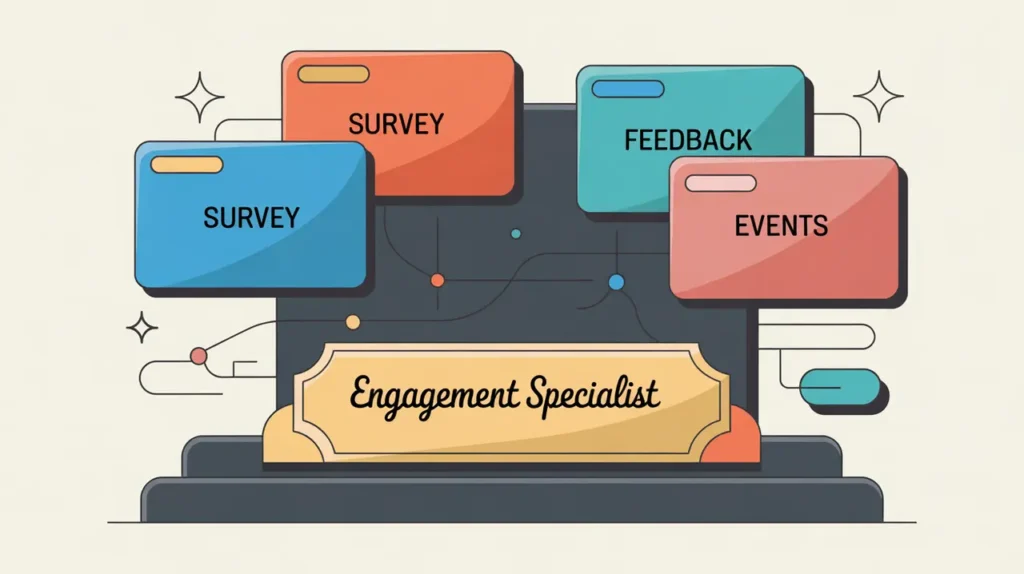What Does the Executive Assistant Role Involve?
An executive assistant is responsible for providing high-level administrative, logistical, and coordination support to senior leaders such as executive directors, CEOs, or members of the leadership team. This includes managing schedules, preparing communications and presentations, coordinating meetings and travel, handling confidential information, and serving as a critical point of contact between executives and internal or external stakeholders. The role typically sits within the executive office or operations function and ensures that leadership activities are well organized, efficient, and strategically aligned. In both nonprofits and social enterprises, executive assistants play a vital role in enabling leadership to focus on strategic priorities while maintaining operational excellence.
At What Level does this Role Operate?
Mid Level: This role typically reports directly to a senior executive and involves managing complex workflows, coordinating across multiple departments, and handling sensitive information. It often includes advisory responsibilities related to scheduling priorities, communication flows, and information management.
Relative Employability: Executive assistant roles are consistently in high demand across nonprofits, social enterprises, philanthropic organizations, and corporate settings. They are central to the smooth functioning of leadership offices and are often difficult to replace due to the trust and institutional knowledge they build.
Relative Pay Scale: Within nonprofits and social enterprises, executive assistant roles sit in mid-level pay bands, reflecting the mix of high responsibility, specialized administrative expertise, and strategic coordination involved.
What are the Key Responsibilities and Activities?
- Manage executive calendars, coordinate meetings, and prioritize scheduling to align with strategic goals
- Serve as the primary point of contact for internal and external communications on behalf of senior leaders
- Prepare briefings, presentations, correspondence, and reports for executive use
- Coordinate logistics for board meetings, leadership retreats, and high-level events
- Manage travel arrangements and ensure seamless itineraries for executives
- Handle confidential information with discretion and professionalism
- Track and manage action items and follow-ups from meetings to ensure timely execution
- Support strategic projects by coordinating timelines, gathering information, and liaising with teams
- Anticipate executive needs and proactively manage workflows to optimize their time and focus
What Core Competencies and Qualifications are Needed?
Required Qualifications and Experience
The following reflect common qualifications and experience expected for this role, while recognizing that pathways may vary by context, organization, and region.
- Relevant academic background in administration, business management, communications, or a related field, or equivalent professional experience
- Several years of experience in high-level administrative or executive support roles
- Exceptional organizational and communication skills
- Proven ability to manage multiple priorities and work under pressure with discretion
- Proficiency with office productivity tools, scheduling software, and communication platforms
- Experience working closely with senior leadership or board members
Key Competencies
- Executive-level administrative coordination
- Calendar and workflow management
- Communication and stakeholder liaison
- Event and travel logistics
- Confidential information management
- Strategic prioritization and problem solving
How are AI and Automation Shaping this Role?
An AI-native executive assistant will look to AI and automation to streamline scheduling, communication, and task management. They can use AI tools to automate meeting coordination, draft routine communications, manage reminders, and organize information more efficiently. Automation can support travel planning, document preparation, and workflow tracking, enabling assistants to focus more on anticipating executive needs, managing complex priorities, and supporting strategic initiatives. By leveraging these tools, executive assistants can enhance both the speed and quality of executive support.
What Career Pathways and Transferable Skills are Associated with this Role?
Executive assistant roles can lead to positions such as operations manager, chief of staff, board liaison, or director of administration. The skills developed in strategic coordination, communication, and organizational leadership are highly transferable across nonprofits, social enterprises, corporate environments, and public institutions. This role offers a strong platform for progression into leadership support and operational management positions.







